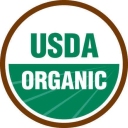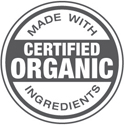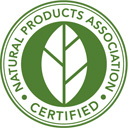Natural Organic Skin Care

Natural organic skin care is a hot topic these days.
Why? Because more of us are becoming concerned about what we're putting in our bodies and on our skin.
We want to look good, but we don't want to suffer the consequences of using toxic chemicals that are harmful to our health just for the sake of beauty.
Here's some helpful information you should know before you buy natural organic skin care products.
What Does Natural Organic Skin Care Mean?
When we see the term "natural" or "organic" in relation to skin care products, what does that really mean? Are they made completely with plant based extracts? Are they sourced from certified organic gardens? Are they environmentally friendly? Maybe they're chemical free, or perhaps they're non-toxic?
These are some of the meanings that might be implied when we buy "natural".
It's important to remember that everything can be broken down into chemical components. Light and electricity are natural -- but simple plant extracts, and even water are chemical when broken down to a molecular level. So, what does the term "chemical-free" really mean?
Most of us have come to associate the terms "natural" and "organic" with meaning "from the earth", "healthy", and "safe". Unfortunately this isn't always the case. In fact, in the world of skin care and cosmetics, product labels can be very deceiving -- unless you know what to look for.
For example, the words "natural", "naturally derived", and "botanical" are descriptive terms, but they don't have a standard legal definition as far as skin care products are concerned.
That's right, those terms aren't regulated by the FDA. That means anyone can use the word "natural" on their skin care labels no matter what's inside the bottle. Some companies even use the term "organic" as part of their name, even though their products have little to no organic ingredients -- it's a marketing tactic.
Confusing, right?
More and more skin care products are being developed with naturally derived ingredients, because manufacturers know that's what we crave. Unfortunately, what's in the bottle isn't always what we think we're buying.
Don't get me wrong -- manufacturers aren't necessarily out to deceive you. Most companies are trying to do the right thing.
Skin care companies are using organic or plant-based ingredients when it makes sense to do it, because that's what their customers want.
In fact, there are some luxurious, deliciously-scented, and highly effective natural and organic skin care options available today. And, as consumer demand grows, our options will expand even further in the next few years.
It all boils down to where you draw the line:
- Do you want completely organic skin care products?
- Are you primarily concerned with putting toxic substances on your skin?
- Maybe you prefer plant based or natural ingredients, but it’s not a deal breaker if your skin care also has chemical preservatives or texture additives.
- Would it be nice to do business with companies that use environmentally conscious practices?
All are valid reasons to seek natural and organic skin care products. Decide what's most important to you, and go from there.
I encourage you to become an informed consumer. Remember, not everything that sounds or looks chemical is "un-natural". Most importantly, just because an ingredient or product is natural does not mean it's safe or effective for everyone.
Take time to explore the differences between natural and organic skin care products to be sure you’re getting what you really want.
Guidelines For Buying Natural Organic Skin Care
To be sure you're REALLY getting what you THINK you're getting when you buy natural and organic skin care, look for these seals:

If it's important to you to have products that are certified organic -- look for this seal.
Products must be 95 - 100% organic (total organic content excluding water) as regulated by the U.S. Department of Agriculture (USDA) in order to carry this seal.

COPA: Products must be at least 70% organic content (excluding water).
If you're really passionate about organic skin care, you may want to join forces with this group: The OCA (Organic Consumers Association) has a "Coming Clean Campaign - Campaigning for Organic Integrity" that is organizing efforts to stop organic cosmetics fraud.
If you're looking for products that are made primarily with natural ingredients -- look for these seals:

Products must contain at least 95% NATURAL (not organic) ingredients. Ingredients must be naturally derived or come from renewable resources such as plants. Products are not tested on animals and are packaged using recycled materials.

Products must contain at least 95% NATURAL (not organic) ingredients.
Natural Organic Skin Care For Acne
When it comes to acne, natural & organic skin care doesn't necessarily mean effective.
Because the long-term physical and psychological effects of having acne can be traumatic, I recommend you get acne treatments that work!
I have yet to find a completely natural organic skin care line that performs as well or better than the formulas I currently use. If and when they come along, I'll be happy to switch.
The treatment strategies and formulas I recommend are backed by years of scientific research, clinical applications, as well as practical experimentation.
Get more information about my acne prone skin care solutions here.
Find more information on Natural Acne Remedies here.